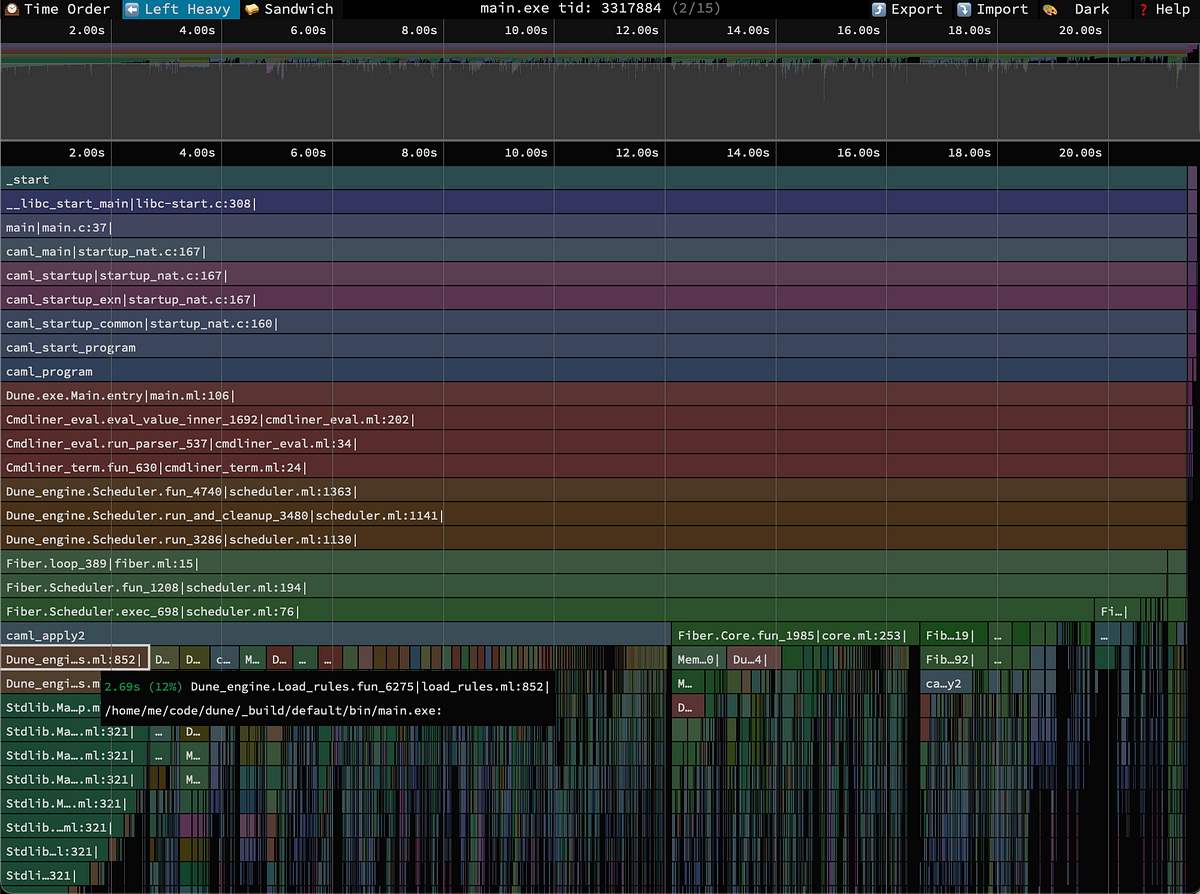Blog
The OCaml Planet RSS
Articles and videos contributed by both experts, companies and passionate developers from the OCaml community. From in-depth technical articles, project highlights, community news, or insights into Open Source projects, the OCaml Planet RSS feed aggregator has something for everyone.
Want your Blog Posts or Videos to Show Here?
To contribute a blog post, or add your RSS feed, check out the Contributing Guide on GitHub.
This is the fourth video in a series about OCaml’s locals. It covers how the compiler infers what variables can be marked as local_ and it gives a glimpse into some compiler output that you can use to see the inferred modes on variables. I also explain how the compiler infers conversions between locals and globals and introduce *mode-crossing*, showing how ints can be both local and global. View instructions to get the compiler I use in this video: https://github.com/janestreet/opam-repository/tree/with-extensions
This is the fourth video in a series about OCaml’s locals. It covers how the compiler infers what variables can be marked as local_ and it gives a glimpse into some compiler output that you can use to see the inferred modes on variables. I also explain how the compiler infers conversions between locals and globals and introduce *mode-crossing*, showing how ints can be both local and global. View instructions to get the compiler I use in this video: https://github.com/janestreet/opam-repository/tree/with-extensions
The OCaml.org team, which includes members from Tarides, have been working hard to improve OCaml.org. In the first half of 2023, our primary…
Dmitrii Kovanikov's Personas Web Space
Enseignement 2023-2024 : Structures de contrôle : de « goto » aux effets algébriques Cours du 1er février 2024 : Structures de contrôle avancées : des subroutines aux coroutines et au parallélisme Professeur : Xavier Leroy Chaire Sciences du logiciel Retrouvez les enregistrements audios et vidéos du cycle et son texte de présentation : https://www.college-de-france.fr/fr/agenda/cours/structures-de-controle-de-goto-aux-effets-algebriques Retrouvez tous les enseignements du Pr Xavier Leroy : https://www.college-de-france.fr/chaire/xavier-leroy-sciences-du-logiciel-chaire-statutaire https://www.youtube.com/playlist?list=PLtimy8tnozICbD45yhB7Ha_zIBJTIK3im Le Collège de France est une institution de recherche fondamentale dans tous les domaines de la connaissance et un lieu de diffusion du « savoir en train de se faire » ouvert à tous. Les cours, séminaires, colloques sont enregistrés puis mis à disposition du public sur le site internet du Collège de France. Découvrez toutes les ressources du Collège de France : https://www.college-de-france.fr Suivez-nous sur : Facebook : https://www.facebook.com/College.de.France Instagram : https://www.instagram.com/collegedefrance X (ex-Twitter) : https://twitter.com/cdf1530 LinkedIn : https://fr.linkedin.com/company/collègedefrance
Enseignement 2023-2024 : Structures de contrôle : de « goto » aux effets algébriques Cours du 1er février 2024 : Structures de contrôle avancées : des subroutines aux coroutines et au parallélisme Professeur : Xavier Leroy Chaire Sciences du logiciel Retrouvez les enregistrements audios et vidéos du cycle et son texte de présentation : https://www.college-de-france.fr/fr/agenda/cours/structures-de-controle-de-goto-aux-effets-algebriques Retrouvez tous les enseignements du Pr Xavier Leroy : https://www.college-de-france.fr/chaire/xavier-leroy-sciences-du-logiciel-chaire-statutaire https://www.youtube.com/playlist?list=PLtimy8tnozICbD45yhB7Ha_zIBJTIK3im Le Collège de France est une institution de recherche fondamentale dans tous les domaines de la connaissance et un lieu de diffusion du « savoir en train de se faire » ouvert à tous. Les cours, séminaires, colloques sont enregistrés puis mis à disposition du public sur le site internet du Collège de France. Découvrez toutes les ressources du Collège de France : https://www.college-de-france.fr Suivez-nous sur : Facebook : https://www.facebook.com/College.de.France Instagram : https://www.instagram.com/collegedefrance X (ex-Twitter) : https://twitter.com/cdf1530 LinkedIn : https://fr.linkedin.com/company/collègedefrance
This is the third installment in the video series explaining OCaml's locals. In this video, I explain how locality is a *mode* and how sub-moding works. (It's kinda like sub-typing.) To get the compiler I'm using here, see the instructions at https://github.com/janestreet/opam-repository/tree/with-extensions






